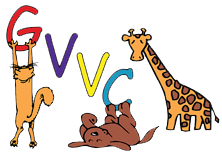As we all shiver through these first few weeks of the New Year, now is the time many of us are making New Year’s resolutions. A large percentage of us resolve to eat better, get more exercise , and drop those stubborn “holiday pounds”. Our four legged friends often are in the same boat -except that they depend on us to keep them healthy. The issue of obesity has reached epidemic proportions in this country,not only for its people but for its pets, also.
Veterinary Pet Insurance (VPI) has provided us with the following information:
- Over 50% of this country’s dogs and cats are overweight or obese.
- Last year, VPI policyholders filed more than $34 million in claims for conditions that can be caused or complicated by excess weight.
- For cats, being 2 pounds heavier than normal and for dogs, 5 lb of extra weight puts them at risk for developing serious medical conditions.
- It is relatively easy for us to understand that meals add to calorie intake, but don’t forget treats-a premium pig ear has the same calorie content as six 12oz colas.
Overweight pets are prone to many health issues including arthritis and joint problems, cruciate tears, diabetes, kidney and cardiac problems, as well as a shorter life span overall.
So what can we do? We need to stop hiding behind excuses. ” My wife,husband,child, mail carrier (you fill in the blank)..feeds him all kinds of stuff.” “He really doesn’t eat that much…” and on it goes. If you look at your pet, and they look a little ROUND, start by measuring how much you put in a bowl for each meal. Fill the bowl as you normally would, and then empty that in to a measuring cup. Repeat for each meal throughout the day. Come to the realization that what ever you are feeding has too many calories. Start by reducing that amount by 10%. Remember to figure in any treats into the daily calorie total. Take another look at your pet in 2-3 weeks (or swing by GVVC to weigh your pet and we will record it in their record) to evaluate progress. Remember we want pets to lose weight slowly-no crash diets for anyone. Rapid weight loss can cause cats to develop metabolic problems, so slow and steady wins the race. If you have any questions or need help formulating a plan, give us a call and we would be happy to help.
Sometimes we put our blinders on and only see the numbers on the scale. What we need to focus on is providing our pets with a healthy lifestyle, enabling us to keep them around for a long,long time.
HAPPY NEW YEAR FROM GVVC
